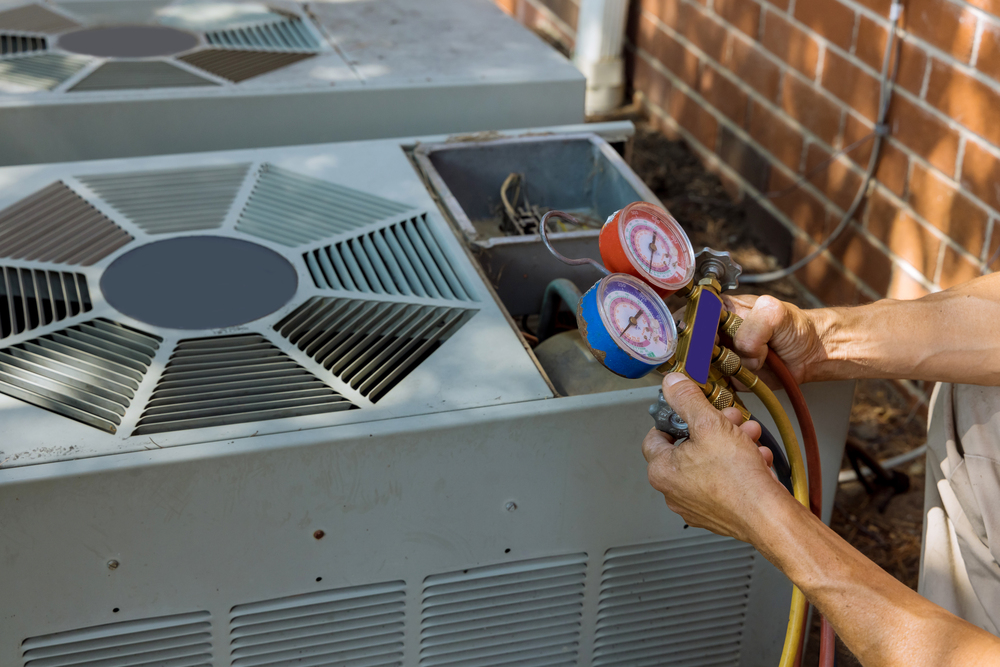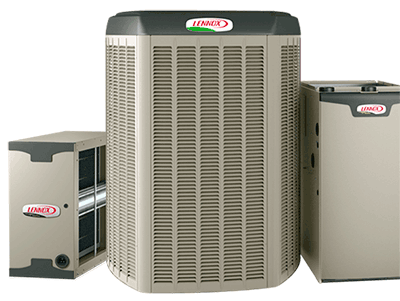Your HVAC system plays a crucial role in maintaining a comfortable and energy-efficient home. However, like any other major appliance, HVAC systems require regular upkeep to ensure they operate efficiently and have a long lifespan. In this guide, we’ll explore the factors that affect the longevity of HVAC systems and provide practical tips for keeping them in top shape.
Understanding HVAC System Longevity
Several factors influence the longevity of an HVAC system, including the quality of the equipment, the installation process, and the level of maintenance it receives. Typically, a well-maintained HVAC system can last 15 to 25 years. However, various elements can either extend or shorten this lifespan.
Key Factors Affecting HVAC System Longevity
- Quality of the Equipment: Higher-quality systems often have longer lifespans due to better construction and more advanced technology.
- Installation Quality: Proper installation by a certified technician is crucial. Poor installation can lead to inefficiencies and premature failure.
- Maintenance Routine: Regular maintenance helps prevent breakdowns and extends the system’s life.
- Usage Patterns: The frequency and intensity of use can impact how long the system lasts.
Importance of Regular Maintenance
Maintaining your HVAC system is not just about ensuring comfort; it’s also about safeguarding your investment. Regular maintenance helps prevent costly repairs and enhances energy efficiency. Here’s why regular upkeep is essential:
- Prevents Major Breakdowns: Regular inspections can catch small issues before they become significant problems.
- Enhances Efficiency: Clean and well-maintained systems operate more efficiently, saving you money on energy bills.
- Improves Air Quality: Routine maintenance helps keep the air in your home clean and free of contaminants.
- Increases Longevity: Regular care can extend the life of your HVAC system, providing better value over time.
Don’t Wait For A Breakdown To Happen
Our certified technicians will provide top-notch service and ensure your system has a long, efficient life ahead! Give us a call or visit our website to learn more about our maintenance services and other energy solutions we offer.
Contact us
Routine Maintenance Tasks for HVAC Systems
Several routine maintenance tasks should be performed regularly to keep your HVAC system running smoothly. These tasks can be divided into seasonal and annual checks.
Seasonal Maintenance:
- Replace or Clean Filters: Dirty filters can reduce efficiency and air quality. Replace or clean filters every 1-3 months, depending on usage.
- Inspect Thermostat Settings: Ensure your thermostat is calibrated correctly to maintain the desired temperature.
- Check Vents and Ducts: To allow proper airflow, make sure vents are open and ducts are free from obstructions.
Annual Maintenance:
- Inspect the System: Have a professional technician inspect your HVAC system at least once a year. They can check for issues that might not be visible to the untrained eye.
- Clean Coils and Components: Both the evaporator and condenser coils should be cleaned to ensure efficient operation.
- Check Refrigerant Levels: Low refrigerant levels can affect performance and cause damage. Have a professional check and refill as necessary.
- Lubricate Moving Parts: Proper lubrication reduces friction and wear on moving components.
Signs That Your HVAC System Needs Attention
Being able to identify signs that your HVAC system needs repair or maintenance can save you from unexpected breakdowns and costly repairs. Look out for these common indicators:
- Strange Noises: Unusual sounds such as grinding, squealing, or banging can signal mechanical issues.
- Inconsistent Temperatures: If certain rooms are hotter or colder than others, there may be a problem with airflow or the thermostat.
- Frequent Cycling: If your system turns on and off frequently, it might be a sign of an issue with the thermostat or other components.
- Poor Air Quality: Increased dust or poor air quality can indicate problems with filters or ventilation.
How To Maximize Your HVAC System’s Lifespan
To get the most out of your HVAC system, consider these tips for maximizing its lifespan:
- Schedule Regular Maintenance: Regular inspections and servicing can catch potential problems early and ensure the system operates efficiently.
- Upgrade Components When Needed: Replacing old or worn-out components can improve system performance and extend its life.
- Use a Programmable Thermostat: A programmable thermostat can optimize energy use by adjusting temperatures based on your schedule.
- Keep the Area Around the Unit Clear: To allow proper airflow, ensure that the area around your outdoor unit is free from debris and obstructions.
Professional vs. DIY Maintenance: What You Need To Know
While homeowners can handle some maintenance tasks, others require the expertise of a professional. It’s important to know which tasks you can safely perform yourself and which ones should be left to a certified technician.
DIY Maintenance:
- Replacing or Cleaning Filters: Easy and cost-effective to do yourself.
- Checking Vents and Thermostat: Simple tasks that don’t require special tools or knowledge.
Professional Maintenance:
- Inspecting and Cleaning Coils: Requires specialized tools and knowledge.
- Checking Refrigerant Levels: Handling refrigerants involves safety precautions and should be performed by a licensed technician.
- Inspecting Electrical Components: Professional technicians are trained to handle and diagnose electrical issues safely.
The Cost of Neglect vs. the Benefits of Upkeep
Neglecting HVAC maintenance can lead to a range of problems, including higher energy bills, frequent repairs, and a shorter system lifespan. Conversely, investing in regular maintenance and timely repairs can provide numerous benefits:
- Reduced Energy Costs: Efficient systems use less energy, resulting in lower utility bills.
- Fewer Repairs: Regular maintenance helps prevent major issues, reducing the need for expensive repairs.
- Extended System Life: Proper care can extend the life of your HVAC system, maximizing your investment.
Conclusion
Maintaining your HVAC system is essential for ensuring its longevity, efficiency, and reliability. By understanding the factors that influence your system’s lifespan and committing to a regular maintenance routine, you can enjoy a comfortable living environment and avoid unexpected breakdowns.
Whether you perform simple tasks yourself or schedule professional inspections, keeping your HVAC system in top condition will not only save you money but also enhance your home’s comfort. Don’t wait for problems to arise—take proactive steps to care for your HVAC system today.
Contact Our Team For More Tips!
We’re here to help you keep your home running smoothly all year round.
Contact us


